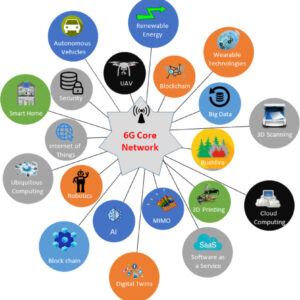The Heartbeat of Modern Computing: Open Source Software
Open Source Software has become the backbone of modern computing, and I’m here to share why it’s not just a trend but a transformative force. When I first delved into the world of open source, I was amazed by the collaborative spirit and the sheer power it brings to the table. Let’s dive into how open source software is revolutionizing the tech landscape, one line of code at a time.
The Power of Collaboration
One of the most compelling aspects of open source software is its collaborative nature. Imagine a world where thousands of developers from across the globe come together to build something incredible. That’s the magic of open source. Take the Linux operating system, for example. It’s a prime illustration of how a community-driven project can evolve into a powerhouse that competes with industry giants like Microsoft and Apple.
“Open source is about working together as equals to achieve a greater good.” — Matt Mullenweg
When I first started contributing to open source projects, I was blown away by the sense of community. Everyone is working towards a common goal, and the collective knowledge is staggering. It’s like being part of a global brain trust where ideas flow freely and innovation is the norm.
Flexibility and Customization

Another game-changer is the flexibility and customization that open source software offers. Unlike proprietary software, where you’re often locked into a specific set of features, open source gives you the freedom to tailor the software to your needs. This is particularly valuable in industries like healthcare, finance, and education, where specific requirements can vary widely.
For instance, WordPress, an open source content management system, powers over 40% of all websites on the internet. Its flexibility allows users to create everything from simple blogs to complex e-commerce sites. The ability to modify and extend the software as needed is a huge advantage, and it’s one of the reasons why WordPress has become so popular.
| Feature | Open Source Software | Proprietary Software |
|---|---|---|
| Cost | Free or low-cost | Often expensive |
| Customization | High | Limited |
| Community Support | Strong | Limited |
| Transparency | High | Low |
Security and Transparency
.jpg)
Security is a top concern for any software, and open source software has a unique advantage in this area. Because the source code is openly available, it’s easier for security experts to identify and fix vulnerabilities. This transparency is a double-edged sword—while it means that potential issues are more visible, it also means they can be addressed quickly by a global community of experts.
Consider the case of OpenSSL, a widely used open source cryptographic library. Despite a major security flaw known as Heartbleed being discovered in 2014, the issue was swiftly addressed by the community. The rapid response was possible because the code was open and accessible to everyone. This level of transparency and community involvement is something that proprietary software simply can’t match.
Empowering Innovation

Open source software is a catalyst for innovation. By lowering the barriers to entry, it allows smaller companies and independent developers to compete on a level playing field with larger corporations. This democratization of technology has led to groundbreaking advancements in fields like artificial intelligence, blockchain, and cloud computing.
Take TensorFlow, for example. Developed by Google, TensorFlow is an open source machine learning framework that has become a cornerstone of AI development. Its open nature has allowed researchers and developers worldwide to contribute to its growth, leading to rapid advancements in the field. The ability to build on the work of others and share your own innovations is a powerful driver of progress.
The Future is Open
As we look to the future, it’s clear that open source software will continue to play a pivotal role in shaping the tech landscape. The collaborative spirit, flexibility, security, and innovation it fosters are qualities that are increasingly valued in today’s fast-paced digital world. Whether you’re a developer, a business owner, or just someone who loves technology, open source software is something you should pay attention to.
In my journey with open source, I’ve seen firsthand how it can transform not just software, but entire industries. It’s a movement that’s driven by passion, collaboration, and a shared vision for a better future. And that, my friends, is the heartbeat of modern computing.









